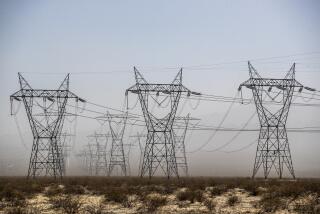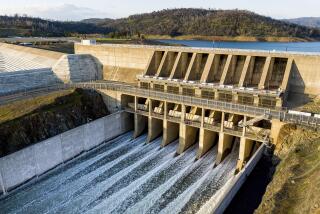Nation’s Energy Security Requires a Global Charge
Now that a new kind of crisis has arrived in the form of California’s electricity blackouts and wholesale price spikes, the term “energy security” has come back into vogue. Unfortunately, many proposals that are being promoted in the name of energy security are unlikely to ensure stable supplies or sustainable energy use for American consumers.
Just as California cannot address its energy needs by prohibitions on exports of electricity to other states, the U.S. cannot achieve true energy security without thinking globally.
The global oil market is more integrated today than it has ever been, and a major disruption of supply anywhere in the world would raise prices and tighten supply in the United States. No amount of investment in domestic fossil fuel resources will significantly change this fundamental reality.
Looking ahead over the next 20 years, the major challenge will be Asia’s rapidly growing energy needs. Asia’s energy demand will grow faster than other regions. By 2010 Asia will consume 24.3 million barrels of oil daily--as much energy as the United States.
The best investment that the U.S. can make in global energy security is to build the institutional infrastructure necessary to develop resources around the world, particularly in Asia. These are rules of the road for access to pipelines and grids, international agreements covering transit rights, protections for investors, emergency response plans and common approaches to assessing environmental impacts. New financing mechanisms are also needed so that countries like India and China can use comparatively expensive, environmentally friendly technologies for resource extraction, power generation and use.
The fundamental issue on the domestic front is that Americans undervalue energy, hoping that the free market and deregulation can bring lots of gain without much pain.
As California has demonstrated, deregulation has unintended consequences, such as problems with reliability of electricity supply. These inadequacies stem from weak market signals that do not reward investments in transmission and distribution infrastructure. They also result from a rush to trade generation assets based on corporate calculations of shareholder value rather than long-term system requirements.
We need to go back to basics--to how we value energy in the economy. While energy today makes up a smaller share of gross national product than 25 years ago, it runs like the bloodstream of the global and national economy. Demand for cleaner and more reliable energy is expanding rapidly in our digital society. Energy use in an Internet server center runs as much as 80 watts per square foot--10 times the typical commercial establishment. As the U.S. economy becomes more information intensive, the businesses that need highly reliable power will have to pay more for it. The government role in domestic energy security should be to provide incentives to enhance reliability, protect the environment and ease the burden on low-income groups.
Price caps are not the answer. But simply unleashing market forces, as Californians have demonstrated to their collective detriment, is also not enough. The government must stay involved, setting priorities and articulating a coherent policy framework that focuses government efforts on promoting global energy cooperation and on protection against unintended negative consequences of restructured and more competitive energy markets.
Political leaders need to articulate a new vision of energy security that capitalizes on globally integrated energy markets while ensuring sustainable and reliable energy supplies. It will not be easy, but it is the essential task for energy security leadership today.
More to Read
Inside the business of entertainment
The Wide Shot brings you news, analysis and insights on everything from streaming wars to production — and what it all means for the future.
You may occasionally receive promotional content from the Los Angeles Times.










